Singapore
Asia taking over leadership in clean energy investments from Europe
Asia taking over leadership in clean energy investments from Europe
Clean energy is now more than a fad and it is becoming a commitment for everyone in the region including ADB which re-affirms commitment to increase financial support to clean energy investments to $2billion a year by 2013 from $1.8 billion last year.
South East Asia pushes through with nuclear power despite Fukushima tragedy
Except in Japan, the construction of nuclear power plants hasn’t been stopped.
What's for Asia a decade after California and Enron
Ten years ago, California’s power crisis finally ended. Shortly after, Enron would file for the largest bankruptcy up to that point in US history. With myriad consultants alternately proclaiming either that “it wasn’t our fault”, “it could happen to you” or “we know what really happened”, restructuring initiatives were scaled back or stopped in China, Indonesia, Korea, Macau, Malaysia, Thailand, Taiwan and Hong Kong.
India on the move towards solar energy
India has made impressive progress in the field of electricity generation since Independence in 1947. In terms of generation, while new capacity has been added, the gap between demand and supply has, by and large, increased.
Asia coal power development now and beyond
The growth in the use of private finance to fund major public infrastructure projects throughout Asia continues unabated. Yet the Asian power sector faces the hurdle of trying to balance industrial and consumer demand with a sound environmental sustainability strategy.
Global clean energy investments for 2011 and 2012 barely flat: Bloomberg New Energy Finance
Global investment in low-carbon energy could just probably go up to $270 billion at most this year from a record $243 billion in 2010.
What Google and Stanford can teach Asia about electricity management
Smart meters that show consumers’ energy consumption won’t be enough to reduce use, studies show.
Siemens presents new SST-400 GEO steam turbine
The new steam turbine for geothermal power plants has a rating of up to 60 megawatts.
Siemens launches smart grid solution based on AMIS system
In the course of numerous projects Siemens has to date delivered more than 100,000 of these smart meters.
Sale of MWM to Caterpillar approved by the European Commission
The transaction is then expected to be finished before the year ends.
4th Singapore International Energy Week to be held from October 31 to November 4
Attend comprehensive conferences, exhibitions, and lectures of top people such as Mr Nobuo Tanaka, former Executive Director of the International Energy Agency.
Wind energy to eclipse aerospace as top user of advanced composites by 2020
The demand for advanced structural materials by wind turbine makers will surge five-fold from $2.5b in 2011 to $15.4b in 2020.
Vogt Power to provide heat recovery technology to Singapore plant
Vogt Powerhas received an order from Siemens to supply heat recovery steam generators and associated equipment for the GMR Energy Power Plant project located on Jurong Island, Singapore.
Renewable energy and the challenges for Asian power markets
Several Asian countries are planning to increase the share of renewable energy sources into their generation mix. China added 18.9 GW of new wind power capacity in 2010 to a total of 44.7 GW of total installed wind power capacity, overtaking the U.S. as the country with the most installed wind energy capacity (40.2 GW in the U.S.). In April 2011, the Malaysian parliament approved a sophisticated system of feed-in tariffs aiming for 2,080 MW in renewable energy (RE) capacity by 2020, joining Thailand, Taiwan and the Philippines in their quest for cleaner energy and lesser dependence on fossil fuels. A large proportion of renewable energy in the system, particularly wind power, will result in a relative loss in base load capacity, traditionally relying mainly on fossil fuels. More crucially, this would lead to bigger problem for grid operators, as wind energy cannot be delivered constantly or adequately to meet fluctuating demand. Although the wind speeds forecasting technology is improving, in the absence of storage capabilities, wind plants are required to shut down to compensate for the load course and relieve the grids especially when less electricity is needed and there is a lot of wind (usually at night). The development of photovoltaics has similar challenges to wind power. Electricity generation depends on solar radiation, which can vary considerably depending on the season and other short term factors such as weather changes and passing clouds. Hence, new and large electrical storage possibilities are needed to compensate for fluctuating grid requirements.. A proven and economically feasible technology to manage the variable and non-dispatchable generation such as wind and solar generation is pumped storage hydro plants. Pumped storage plants are uniquely suited to help integrate intermittent renewable sources because these plants can store electricity to balance load, and can react quickly to changing grid conditions. Interests in pumped storage projects have surged in the U.S. and Europe in recent years, due mainly to the large influx of renewable energy sources, especially wind power. As the portfolio of these intermittent renewable electricity sources increase, grid operators become increasingly concern over grid reliability. In Europe, the share of energy consumption from renewable sources is expected to increase to 20% by 2020 from the current 11.6%. This is expected to lead to an addition of about 27 GW of pumped storage capacity to balance these variable sources of energy. The construction of pumped storage facilities has seen long periods of ups and downs. In the 20 years up to 2010, Europe built only 15 plants with a total capacity of 5.6 GW, while 30 years passed in the U.S. without any new pumped storage projects. As of early 2011, Europe has almost 45 GW of pumped storage capacity in operation; the U.S. has about 22 GW, while Asia has about double that of the U.S. with Japan installing half the share. Historically, the development of pumped storage facilities has a lot to do with the size of the energy industry and the generation mix. A large energy industry has a bigger need for capacity to store electricity. A higher share of more operationally flexible power plants such as gas-fired power plants (compared to conventional thermal plants) in the generation mix requires less storage capacities. Now, the appeal of pumped storage is connected to the potential it offers to help integrate intermittent renewable energy resources into the grid reliably. Capital costs for pumped storage plants vary widely according to local conditions (the existence of a lake or existing hydro facility can significantly reduce costs) and economies of scale, however they are typically significantly more expensive than traditional hydropower or thermal plants. In face of such costs, the challenge for any storage facility is the financing. The uncertainty over the value of pumped storage is typically the lack of adequate methods for the valuation of storage. This is generally the case in many emerging economies with newly deregulating power markets. Traditionally, the economics of pumped storage is driven by the peak to off-peak spread – the cost incurred for pumping during low off-peak prices against the revenues gained when generating during peak hours. While arbitraging the difference between peak and off-peak prices was an effective way of benefitting from inflexible thermal generation, pumped storage projects built to complement intermittent renewable resources would likely rely on less predictable price and generation fluctuations. The irony in adding significant storage could shrink those price differentials by relieving downwards pressure on off-peak prices, making it difficult to recapture construction costs. Ancillary Services can be another significant revenue source for pumped storage facilities. Due to operational flexibility, pumped storage facilities are very capable of providing a wide range of ancillary services. As each System Operator sets their own standards for ancillary Services, product definition and market-price formation, Ancillary Services in less organized markets may not be properly valued, and can therefore make it difficult for investors to justify the high investment costs of a pumped storage facility. Increasing the percentage of generation from renewable sources will create the need for more storage facilities, increase the requirement for ancillary services, as well as compel large investments in the strengthening of transmission grids. A national commitment to a high renewable portfolio in developing markets in Asia, requires a commitment to either 1) A deregulated power market with competitive spot market operations together with a customized co-optimized market for ancillary services, or 2) An Energy Ministry with a long term vision for a healthy and functioning power sector, and the financial backing and muscle to invest in long term solutions that include pumped storage facilities.
Asian Power Awards 2011 winners announced
The best power companies were recognised at this year's awards held in Malaysia.
Can solar leasing programs be adopted in Singapore?
The Energy Studies Institute says the outlook for residential PV systems is less optimistic in Singapore since more than 80% of Singaporeans reside in high-rise buildings.
Asian utilities losing incentives to go green
The environmental retrofitting of power plants in Asia is coming to an end as the CDM business dries up with no clear successor to the Kyoto protocol, warn analysts.
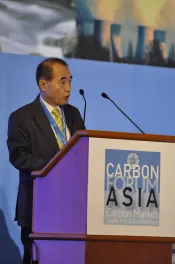
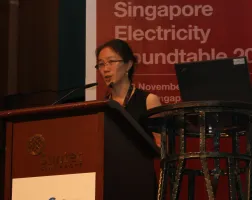
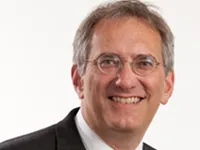

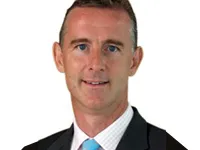

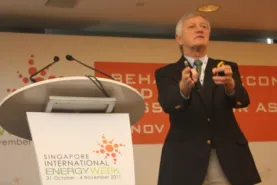

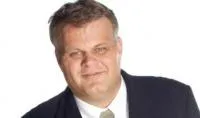
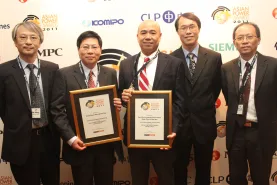


 Advertise
Advertise














Commentary
What a $635b investment push could mean for India’s refineries and thermal power plants